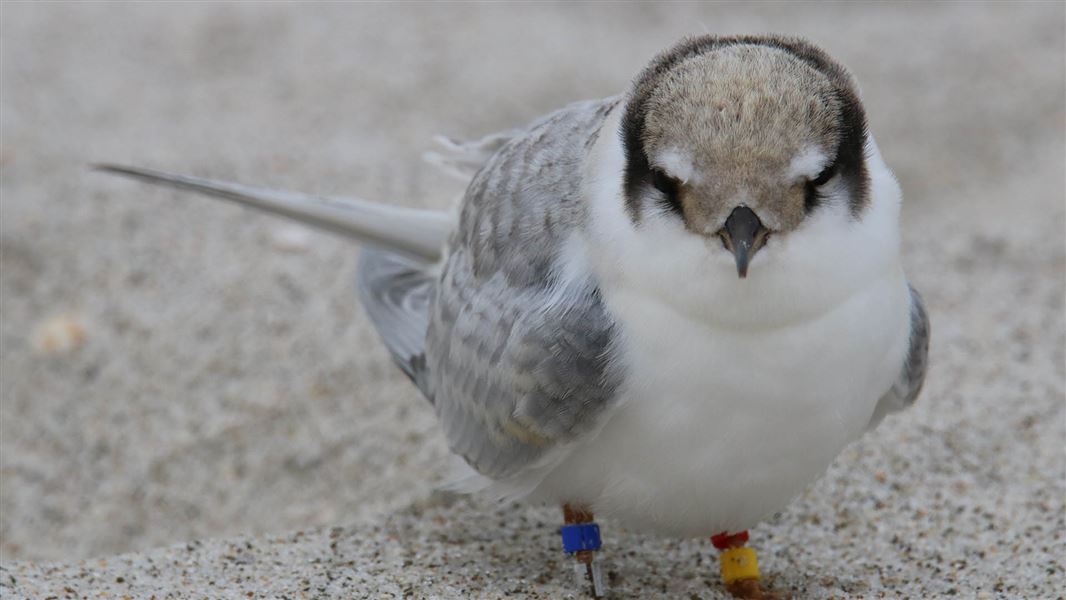Archived content: This media release was accurate on the date of publication.
Date: 13 February 2020
With fewer than 40 adult birds, the tara iti/fairy tern is critically endangered and despite intensive management has teetered on the brink of extinction since the 1970s.
“Seven chicks is a great season – last year (2018-2019 season) we only had two chicks fledge, so this is a big improvement, but more of what we would hope to call an average season,” says DOC Biodiversity Ranger Ayla Wiles.
“The settled weather during the season resulted in fewer nest loses than last season and overall the birds finished laying earlier. The major challenges this year have been the loss of at least one of the parents of two chicks at Te Arai and the subsequent loss of one of those chicks; the loss of a fertile egg to a rat at Waipu, and the desertion of a chick by its parents half way through the dependency period at Mangawhai.”
“We have also had higher incidences of compliance issues causing disturbance to the birds. Common problems have been dogs in DOC administered reserves and wildlife refuges and Auckland Council land where they are not allowed by law, horses in areas they shouldn’t be, vehicles, drones, low flying paragliders, jet skis, fizz boats, and aircraft causing disturbance as well as small fires threatening the nest sites. These causes of disturbance are common to most of our shorebirds, not just the tara iti,” says Ayla.
Tara iti/fairy tern’s nest on shell and sandbanks above high tide, which leaves them vulnerable to predators, disturbance by people, 4WD vehicles and dogs.
A dedicated team of six fairy tern DOC rangers and numerous community volunteers have been busy since September trapping for predators near nesting sites, fencing off nesting sites and preventing nesting birds from being disturbed by humans. These rangers and volunteers will finish the intensive stage of work shortly
Once widespread around the North Island and on the eastern South Island, the New Zealand fairy tern now breeds at only four main nesting sites, found at Papakanui Spit, Pakiri Beach and Waipu and Mangawhai sandspits, as well as a fifth site at Te Arai this year.
DOC works closely with Patuharakeke, Ngāti Whātua o Kaipara, Ngāti Manuhiri and Te Uri O Hau, Shorebirds Trust, The NZ Fairy Tern Charitable Trust, About Tern, Birds NZ, and the Waipu About Tern Trappers to help protect the New Zealand fairy tern.
Support for the tara iti season has also been provided by Biomarine, New Zealand Defence Force, Pakiri Beach Holiday Park, Tara iti golf course, iwi and landowners at Pakiri, Auckland Council, Armourguard and Auckland Zoo.
Contact
For media enquiries contact:
Email: media@doc.govt.nz
